Sometimes, smart, earnest people like us can get really frustrated by how much work our work is.
We think, “C'mon. I've studied this for years! I've been making adjustments for years! What is happening!? It shouldn't be this hard.”
This can get really, really frustrating. And painful!
Here are a couple of thoughts that might help.
Everest-level goals guarantee the need for course correction
When we pick something to aim at that's far off — something like the long-term flourishing of young people via teaching them to master disciplines with thousands of years of accrued complexity — we're bound to need course corrections as we go.
It's just geometry. When you start at one point and you aim at another that's far away, the likelihood of being able to hit the far away point with a perfectly straight line is really low.
Allow me a silly illustration:
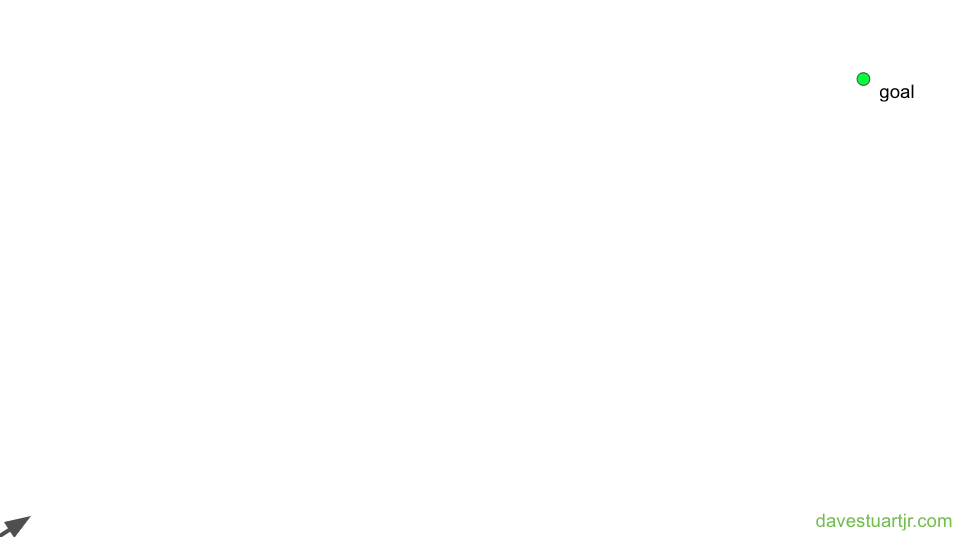 |
We set out as direct as we can.
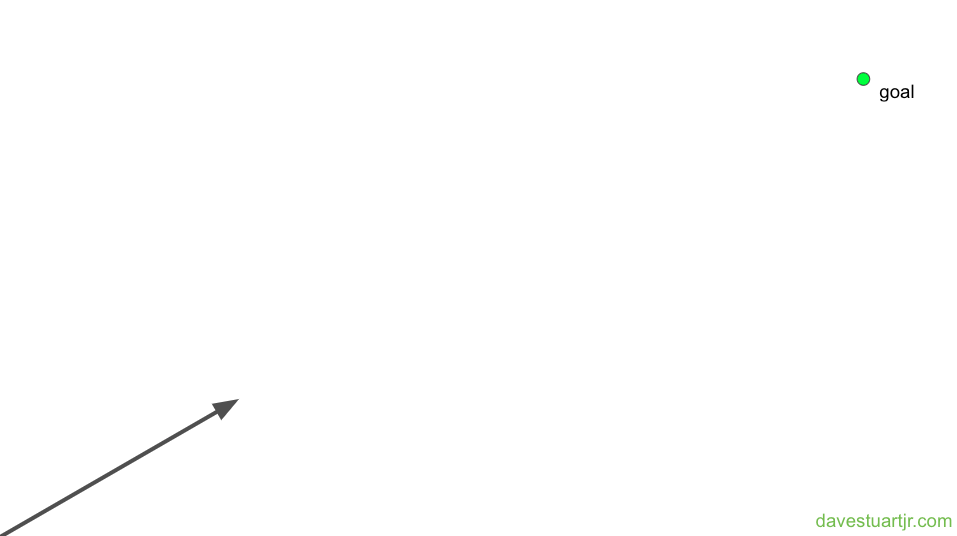 |
We keep on, aimed straight and true.
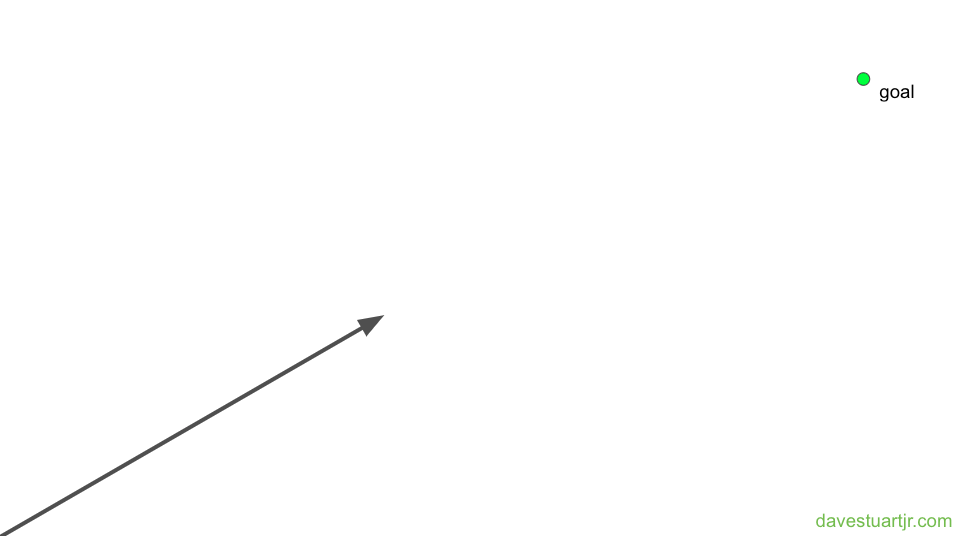 |
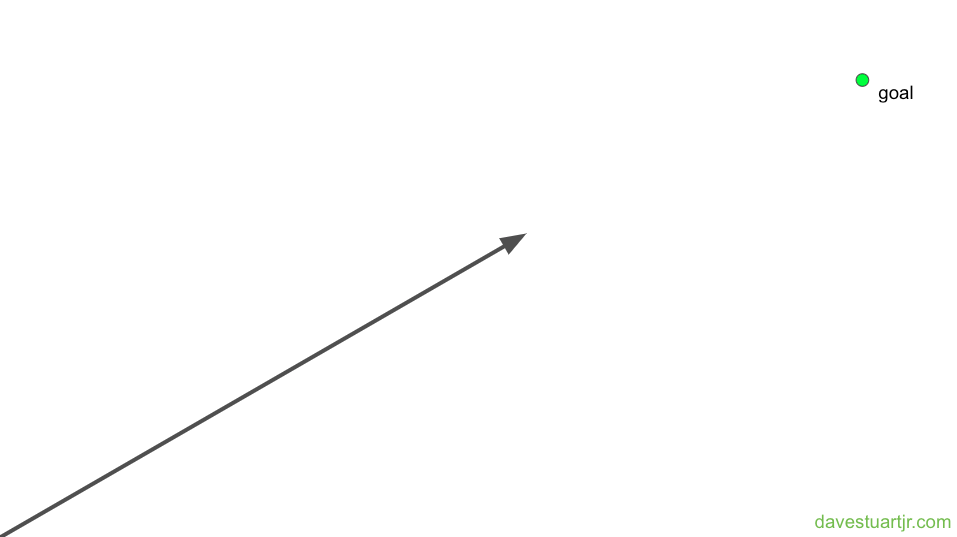 |
We keep going.
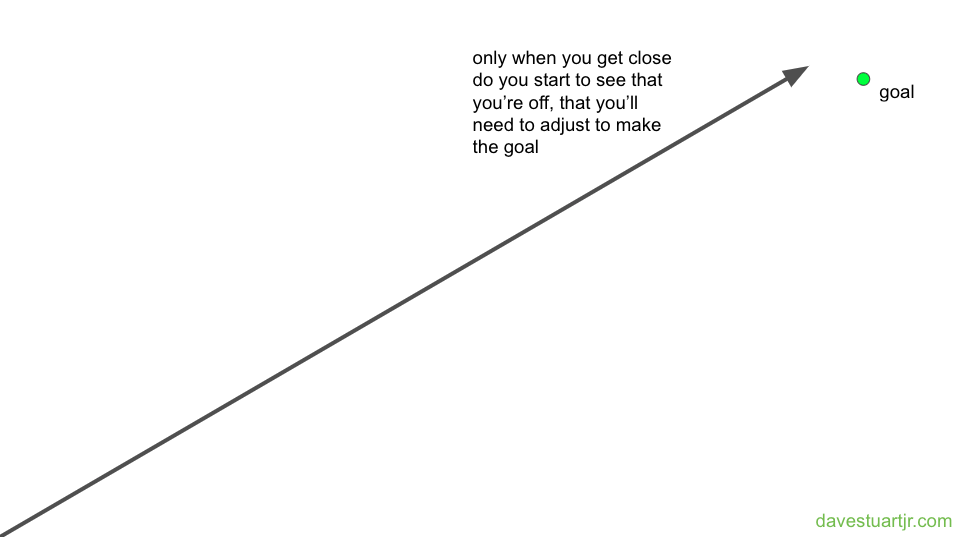 |
And eventually, we get close enough to see that we're not on quite the right line. We need to adjust.
And my illustration really fails at showing the scale of the far-offness of what you and I are aiming for. Mastery is an ongoing process — not a checklist or a test at the end of a unit. Doesn't mean get rid of tests or checklists. It just means, this is hard.
Expect to need to adjust.
The ascent obscures the peak sometimes
I'm not a mountaineer, but recently I was in Anchorage, AK, and my travel buddy Tyler and I were driving north to Talkeetna, keen to see Mount Denali. About sixty or so minutes from our destination, we got our first glimpse of the mountain. But then throughout our drive, it was often obscured — by trees, by other hills, by weather.
I imagine hiking and climbing a great peak is similar. You don't always see clearly where you're heading. Sometimes, the ascent obscures the summit. But the successful mountaineer maintains the course that they intelligently selected when the view was clear.
To adjust, or to stay the course?
And of course, you'll note the tension between those two sections. There's a time to stay the course you previously set, and there's a time to adjust because the course you previously set isn't going to arrive where you want it to.
One of the first fruits of wisdom is knowing when to do what.
My prayer for you, colleague, on this first blog post of 2022, is that you'll grow in wisdom this coming year, and that your life will indeed be one wrought with a flourishing that previous versions of you could never have tasted the sweetness of.
Best to you and yours,
DSJR
P.S. Many thanks to my sweet wife Crystal, whose counsel and companionship prepared the soil for today's article.
Patricia Stauch says
This blog really touched on something I’ve been pondering. Teaching is hard. Learning is hard. Being human is hard. And all of that challenge comes to those of us in education because we have chosen a field that is all about human relationships. We might have learned the content of what to teach in undergrad and grad school, but we learn about the ins and outs, ups and downs of relationships day by day, child by child. It’s never a straight line. We will always have to adjust. But, for those of us that stay in education and keep relationships as our main content, I can guarantee that we will have one heck of a ride! Thank you Dave!